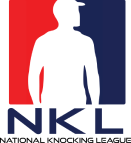Ad 00:06
Can’t Knock This is brought to you by Vis Sarris, a Pest Control distributor making a positive impact on young businesses. Along with the broad product portfolio of top brands. We offer exclusives like the intercare mosquito trap, and with the resources like pro training, inventory manager and pest web, and over 65 locations nationwide, we provide the products and insights to grow your business visit go dot vissarris.com slash knock this to learn more.
Sam Taggart 00:38
Alright, everybody, this is Sam Taggart with D 2d podcast. And I have Jeff Depatie on this show. And this guy’s This is a cool, interesting one. 15 years in the Special Forces. You know, he’s a co founder and chief course architect of the Special Forces Experience. And oh, you know, that many years and leadership and military experiences and different deployments and different exercises, you know, now bringing this into the personal development business world where helping sales and business cultures, shift their culture and shift their mindsets and shift their experiences to create long lasting, you know, companies that, you know, big, big problem in today’s world is we have so many transient employees. And, you know, you get, you know, back in the day, you’d have people would stay with businesses for 50 years. And today it’s every couple years people are seem to switch, right? And it’s like how do you create a culture how do you create a an environment where people stick and they want to grow with you and they want to be part of that they have the mental fortitude to last through hard things. And, you know, so in this podcast we’re gonna be diving into is one the rep level on the the resilience notice it takes to you know, get through the Green Berets and get through the, the mindset of a of the Special Forces, but then also to actually as a business or leadership, if you’re an owner, how to drive behaviors and drive culture within down to your rep level to create the discipline that the military would be able to create, and they’re, you know, in their culture. And I think that, you know, door to door sales, a lot of times, we, if we could treat it much more like the military instead of loosey goosey we would want all make more money to I’ll be happier three have a lot more structure and systems instead of it kind of be like, Oh, so when you want good luck, and then they end up fading out because they’re not making the money they probably could be making had they had a little bit more structure and discipline, much like the Special Forces. So you know, first question, Jeff, one appreciate you being on the show my man. And I guess just just to kind of give us a brief background on you. kind of tell us how you got into the the Special Forces. Why was that? It? Was that always a vision of yours? And then how you transitioned into what you’re doing now?
Jeff Depatie 02:56
Yeah, at the time first, thanks for having me on. Really appreciate that. Military. Well, let’s just say that was in my blood. I was one of those young guys running around with op shooter out in the woods camp and that kind of stuff. So in some ways I was I was destined for. It didn’t help that my generation was the Rambo generation and, you know,
Sam Taggart 03:19
blowing stuff up the awesome special effects you go back and watch. Like, wow, that was so vague. Like, you know, he’s so funny. Anyway, keep going.
Jeff Depatie 03:30
Yeah. So traveled where, you know, living life, went to school, try to refute different things, chemical engineering, computer systems engineering, you know, still young 20s like, where do I go? What do I do, knowing that I would sign up for the military, but the catalyst was 911. It happened and it was go time, you know, so signed up at the time. So the unit I wanted to eventually become a part of is something known as JTF two Joint Task Force two, that’s the Canadian tier one unit equivalent to your seal team six or Delta Force, okay. I didn’t know it existed, we always had really a lot of veils on it. And it wasn’t until I was in the recruiters office where they’re like, Oh, yeah, you know, you can take this path and boom, that was it. So into the infantry, airborne, Afghanistan, back home selection, and then in the unit for the rest of my time in the military. It was it was amazing experience I ended off as a sniper was a great experience. You can imagine the there’s a concept called relativity of attributes and you don’t know what you don’t know. Right? And it takes 10 years to get 10 years of experience. And once you’re around certain elevated human beings out there, it just does amazing things. And I was just always fascinated by the ability through osmosis to empower yourself. elevate yourself, raise your consciousness to be faster, smarter just by watching someone. Let a Doing the techniques, the training, all the things that go behind programming those cognitive traits of the mind to elevate yourself. And then fast forward, as the stories often do go, I met a woman, my wife, Jessica, down in San Diego, we were doing, I was on my jumpmaster course. And we are winded out, which means the winds were too high to jump. We went out rented a beach house in San Diego, Pacific Beach. One thing led to another best breakfast of my life. And right away. A conversation was like, Okay, well, so her dad’s a military man, her grandfather was one of the original seals. She has just like, an experience with military men. And she, she admires military, she just didn’t want to do the military lifestyle of, you know, moving bases, like I was gone more than nine months of the year, any given year, on the road around the world. So we started talking, okay, well, what do we do? What do we do? What do I do with this experience that I don’t want to go into government work? I don’t want to go into contract work. What do I do with it? so she’d spit out the suggestion, or let’s do a man camp. And like, I think I was drinking coffee or something, I just think it was like, splattered all over the place laughing kind of like now that doesn’t sound like me, axe throwing marshmallows, what that. So we started to evolve it. And we started to evolve it. And we took all those interests on my experience that I loved about developing, you know, from the neural level out and applying it to a program for men known as the process. That’s our flagship program, where over roughly eight months, depending on where you sign up, there’s task chores things for you to do, that’ll start to an emit behavioral change, and bring it optimize your levels. One of the methods we use is something called post traumatic growth. So most people have heard of post traumatic stress disorder. It’s gotten a lot of speed right now. But it turns out that there’s this big brother to it post traumatic growth, which is the same cycle, you just don’t get caught in the suffering portion of it. And that’s a big portion of the process is learning how to program your brain, and your nervous system all the parts ago, whether your sensory inputs, everything to handle stress, loads, handled stress loads. And, yeah, that went really great. And then we created a few other things. And it’s been good times ever since.
Sam Taggart 07:38
That’s awesome. That’s awesome. So let’s dive into like that whole post traumatic growth situation. So obviously, we’re not getting shot out in the streets. Well, some of us are, I can tell you stories about dudes getting shot, I’ve had guns pulled on me. So maybe in a sense, we’re in our own little battlefields. But in the sense, shots fired could mean objections, shots fired, could means days that we don’t sell anything makes $0 weeks that we make $0 months. These are, these are stressful situations where you know, you’re going and trying to provide for your family, you’re working your ass off all day, and you come home and you make no money. And you you know, you have days where literally cops get called on you guns pulled dog sick on you like it is a hard job. And it does create a lot of stress. So I guess, if you were to apply this whole post traumatic growth, where you can deal with those stress situations and move past them and change yourself and how you’re receiving that stress, because obviously as a sniper, you’re getting shot at, you’re still having to keep your finger on the trigger cool as a cucumber and still like point name, right? So you’re, you’ve had a lot of training, dealing with stressful situations and staying cool, calm and collected. So I guess, how would you apply some of your teachings and methodologies to that individual that is dealing with kind of this almost PTSD? Where it’s, it’s really just an emotion that there’s there’s been created due to lack of performance and the doors essentially.
Jeff Depatie 09:08
Okay, thanks for the massive topics, and I appreciate that.
Sam Taggart 09:13
That was like a long question. You know.
Jeff Depatie 09:15
There’s a lot of carryover, when I look at companies. You know, maybe there’ll be some furrowed brows at this, but I look at the salesperson as the operator of the company. You know, you take the sales guy out of there. And not all the time, but most likely there goes your revenue, right? Unless you got some regenerating stuff, but you know what I’m saying, right? So you’re absolutely right, that those constant stress loads that have to be endured. I would, honestly Maslow’s hierarchy is a good place to start as a simple reference. You know, you have your physiological base needs and as you move up those the pyramid there’s other needs that you meet safety, security, love and belonging self esteem, self actualization, and then for very few on to self transcendence. But understanding those base needs is super key. Because what happens is we’ll just take sleep as a factor and you know, door slammed in your face kind of thing not making the sales, right. And the feedback loops that it can create. So you go out expectations aren’t met, because we all create expectations and when expectations aren’t met, it’s almost impossible to not be disappointed. So that’s like one place I would start I don’t knock on doors myself. So I couldn’t tell you, okay, live with intention versus expectations of, Okay, I need to make five sales and that day, you know, maybe something more like, I don’t know, this is kind of off the cuff, I’ll do my best. And you know what I mean, everything that comes bonus. So I’ve gone didn’t meet my expectations, my stress has gone up, get home to the wife and kids, I step a little bit later. I don’t get my REM sleep that night. So my emotional senses are not removed from the memory of the day, I’m not really actually in a healthy way recycling those emotions and thoughts. So it’s residual. I get up the next day, I probably didn’t have a good night’s sleep, I got up too early. Now I’m sleep deprived. Most people need eight to 10 hours. And you know, some people can manage an LTE on six. But you know, most people are getting five hours a night. So you know, sleep plays into it. Okay, go back out. Maybe this this day, you know, your expectations are met. But then you go celebrate, you’re out a little bit later you had some booze, then your system doesn’t reset again, because now it’s all charged up and your bodies and cells trying to metabolize out those things, you don’t go into REM sleep again, same thing, but those emotions from two days ago, are still attached those memories, and usually with things like booze or any What did they call that? Not entertainment, it’s not the category coping coping, yeah, coping tools, just bury it away and buried away. And what happens is a big old pile starts to form. And that just like one tiny little bit of life, right, that’s not to mention, people probably aren’t programming their biology, right? By eating the right foods, they’re probably not getting the right light for their DNA, etc, etc, etc. And a lot of people go into things and they they’re like, Okay, well, how do I make more sales, for example? Well, you know, go back into you go down to your own base needs and build yourself back out. And then once you built yourself really, really well now, understand interpersonal dynamics. Because as you build yourself, you should understand your own psychology much more. And then you can move into understanding other human beings psychology, so that when you’re, you know, your delta, your muscles, triangle overlaps with someone else’s at the door, and they’re all frazzled. And you know what I mean, you know, a little bit better how to disarm without setting up some of the, I think human beings have a really deep and innate antenna for truth. And a lot of people get, you know their hackles up. And just through understanding those things, you can start to avoid that. And kind of circling back to where post traumatic growth fits into this, Sam is, we live in comfort zones. That’s what we’re going to be, we’re not going to break out of those boxes and be more. Posttraumatic growth is a purpose built cycle of educating yourself understanding putting yourself into the unknown, or trauma, whatever that is, it doesn’t have to be hugely, it doesn’t have to be into the jaws of a lion kind of thing. It could be going on a podcast or speaking in front of people as a Toastmaster or something like that. It just has to be out of your comfort zone. move in to the next portion, which instead of coping or running or suffering through healthy emotional expression, talking, chatting, journaling, bringing the words out of your head to understand the emotions because words are the neurological map of our reality. And we want to just keep creating the best reality we can right a lot of people say oh, story, you know, you got to know your story. tell your story, because, okay, well, what does that mean? What am I really doing? What’s the tools I can use to cycle through this to develop my story as the you know, the hero of your journey?
Sam Taggart 14:22
Yeah, I like when you said, you know, obviously, so many people have all these emotions and sales is such an emotional rollercoaster, right? And so when you say, being able to process and confront like, you do something hard, you push and lean into this uncomfortable thing, and you’re like, Okay, I’m gonna do something a little hard. That’s not not in my norm. And then being able to process it through words or journaling and getting out of your head. And I think so many sales people, they live in their head, you know what I mean? They, they are afraid to express their real emotion. Why? Because they’re gonna get eaten by the pack of wolves. Emotionally because it’s a macho culture to, they’re afraid because of shame and fear, and it’s going to create more anxiety if they express themselves truly. So what do they do they stay living in their head, which then is a downward spiral into more and more stress and anxiety and less and less performance. So I think that I’m liking this kind of process where it’s like, you lean into something hard. And I think a lot of people don’t ever even start with phase one where you said, Let’s, let’s like, go hard and like do something challenging, then process that keep going. I like where you’re going with this is like a cool framework.
Jeff Depatie 15:35
Yeah, well, you mentioned emotions, right now, you know, your audience is watching and listening, all those sensory inputs, almost every bit of it goes through your emotional centers Well, before it goes to your prefrontal cortex to your higher senses. So the, the, why we try to deny that we have emotions is beyond me, I don’t know where that came into culture, because it’s actually not beneficial, you know, it’s created shellshock. And in the world of the military, in the world of high end sales, it creates burnout, and robots, you know, so anyways, understanding that those are the basis and that’s how we first start to think things and then what happens is, if you live in such a box, that you only cycle through those higher functions, and not emotional functions, which I don’t know how your life can be so regimented and square, especially if you’re going to every door, which is a different character on the other side. I don’t think you’re building up the right tools for yourself, I think you’re going to just carry on, you’re gonna probably not be in your parasympathetic state enough, and you just keep carrying those stress loads. And then once you have those stress loads, then you bring them home to the wife and then you carry on all those you know, it’s it’s a vicious cycle. And it’s, it’s really not that complex to let go. I mean, guys, for your use, but don’t journal or try having a deep conversation with another man could be a woman, it could be you talking to the mirror to get going. There’s something about putting it out into the world. With cycles back in through your ears and your eyes. That’s where the magic starts to happen.
Sam Taggart 17:12
So here’s a thought and I’m just saying if you’re listening to this, this might be something to try because it’s a lonely place as you’re you know, out there knocking you get your face kicked, and face kicked and face kicked in. It’s like emotions are now building you’re like, Man, it’s gonna be another one of those days. I’m just gonna bagel You know? So I guess my question would be, could you just speak it out into the street? You know what I mean? You’re out there just talking to yourself. And you’re like, Okay, let’s process the emotions that I’m going through right. Now. Let’s, let’s think about this. Let’s bring some more positivity into this downward spiral. I see. And, and, and almost this like, like, I guess what, what technique like you’re out there being a sniper. Sometimes that’s probably a lonely place. I’m sure you’ve done some solo missions, where it might be easy to get really emotionally worked up. What are some good techniques that you’ve seen, you know, in the military, in business and helping individuals, you know that they’re alone? They Yeah, they can come home that night, and maybe talk to their wife or another dude, but it’s like, what do they do while they’re in the in the fire? You know what I mean?
Jeff Depatie 18:14
Yeah. So I’m a huge fan of contemplation. So if I was to kind of break it down into what we do as human beings, we have concentration, contemplation and meditation. meditations are about just emptying your mind of as much thought, emotions and impulses as possible. You know, the, the Hasidic warrior out in the jungles of India, eating green rice for four weeks on a time. That’s like the high end meditations, right and not really serving anyone. It doesn’t really do all that much good. Not saying meditations aren’t good. On the other side, you have concentration that’s the guy or gal who is just forcing their way through life trying to rational Lee think their way through everything and just keep pushing, keep pushing, keep pushing, keep pushing. It’s like well, I just keep pushing, but nothing’s working right. In the middle you have the art of contemplation and the art contemplations like you said you’ve been on a couple doors something’s not working, right it’s like okay, I have some some flare up of my nervous system my sympathetic nervous system I’m a little bit stressed my cortisol is rising you know stop called pausing. check in with yourself. Look, while reference back to Maslow’s needs. Okay, did I eat maybe my sugar levels are a little all I haven’t been drinking water, okay, I’ll drink some water, etc, etc. On those needs. Make sure they’re good to go. Okay, they’re all good to go. I didn’t really need to do much there. Okay, why am I getting so activated and contemplation is gently rolling thoughts around your head in a comfortable, I’ll use the word safe place because if your body is sensing danger of any sorts, you’re not going to really get into a good contemplation. Now, everyone’s content places are different. Yours might be on your armchair in your living room. And it may even involve your daughter running around on the floor. For some people, it’s out in nature on a walk, whatever that is for the door to door, feller or gal, I would imagine, you’d want your car to kind of your vehicle is your closest place, I would imagine maybe it’s a coffee shop, something like that. Nothing worse than not stopping when you should stop and check in then trying to force your way through, the more you force, the less power you actually have. And it’s just going to continue that spiral that cycle, right? And with contemplation, oh, god,
Sam Taggart 20:40
no, I was gonna say, so. Bring it back to the doors. You know, a lot of times, I didn’t consciously know what I was doing. But I consciously made a phone call to my mom, my cousin, my brother, you know, people that were important to me, I’d sit down and eat my granola bar, I knew that at certain point in the day, I knew when I was going through concentration, my sheer like, drive drive, and I was like, hold on, I need to take a 10 minute break, I’d set a timer. And I would make a phone call get my mind off something, I’d start to like process things that eat my granola bar, sip on some water, and I’d like reset. And then I get going again. And I found that usually it was the first door after my phase of contemplation is what I would sell. And it was like, dude, I’m having a rough day. Like, you know, and a lot of people are like, I don’t take breaks down on this. It’s like, it’s a controlled break. I think that a lot of people in our industry, they’re like, Oh, I would never stop and sit down on a curb or whatever, or go back to my car for a minute. But the reality is, like you just said it’s is that really going to come from a place of power. When selling if you’re in this phase of anxiety, want needing more needing more anymore, and you can’t get it you can’t get it now you’re just like, out of breath out of breath, and all sudden the day ends and you’re like, you never came from a place of power. So I love this topic of contemplation. This is good. This is good. I’m like taking notes. Good. Keep going, keep going.
Jeff Depatie 22:03
Let’s Let’s roll with that. So you’ve had your granola break, you intuitively done it. Some human beings are really great at intuitively understanding their body, your body was probably like, Okay, I need some energy, my sugar levels, whatever, my ATP is running low, I need to sit here relax, call my mom or girlfriend or wife calming voice I emotionally Express and then I carry on maybe I don’t know when it would happen. But it was kind of, you know, there’s cycles in the day where it’s like, you know, I’m guessing it’s not a great time to sell where people are. Correct me if I’m wrong, somewhere around 12 to two o’clock is probably a tough time to sell to people, especially if they’re, you know, busy all that kind of stuff. So anyways, now become you open up, I opened up my door here, there. We’ve been observing facial expressions of other human beings for if you’re a biblical guy for 1000s of years, and if you’re a Darwin kind of guy, hundreds of 1000s. And you know, who knows? My point on it is this if you come to my door, and you’re carrying stress, which is a fear, emotion, and I open up the door, and I see that it’s very hard to hide with a fake smile, you know, human beings are we’re in us in them machine like that’s what we do, is this person healthier? To get me you know, whether, you know, like, it doesn’t have to be that tense. But it’s that’s what’s happening, right? There’s a million cues that go on once that door is open, and you only get that one shot to have that first expression, right? So you come back now you’re, you’re you’ve you’ve gotten more parasympathetic, your stress loads are down, you know, you metabolize that, that cortisol, everything’s running really good in the machine. I would imagine that starting that conversation from that point, is really good. The stress from your voice. We all know that when we’re a little bit stressed, there’s a little bit of tension in our, in our vocal cords. That’s why we try to get back down, right? Nothing, nothing helps lower stress, like a simple inhale, exhale, that is with purpose. Move into the conversation and then we’ll circle back you know, you’ve you’ve done your work on yourself, I understand my psychology, I understand your psychology, you’re able to assess that room, way faster. The chaos that is another human beings life in a split second, you know, and with all those environmental cues running and what in the background, it’s called your reticular activating system, where there’s just all kinds of bits and bytes coming in your site mostly, and your brain just filtering out the more calm you are, the more you can get those good nuggets so that you can relate to that person a lot quicker.
Sam Taggart 24:40
And I like where you’re going with this whole like being a much better sales individual or performer has a lot to do with your ability to process and work on your own inner identity. And I think a lot of people think they they’re like I’m going to focus so much on the sales words the word track the the the body language, the this and Like the little like tricks and tips, when I think a bigger one is working on your ability to process like you said, if you could control your reticular, activating system or whatever, in a much faster way, and you’re almost like Spider Man where, you know, punches coming at Spider Man, he’s seeing it in slow motion, because he’s like, man, I can process things 1000 times faster than you’re processing this information. So if I can process things 1000 times faster than customers processing their emotions and their situation and this and that, I’m so much more debt to one control the body language that I probably wouldn’t have naturally been able to force control, like you said, it’s hard to fake a smile of stress. I’m naturally smiling, I’m naturally responding with empathy, and I’m naturally responding with with care and employees and, and in the situation isn’t like creating this stress in me. So I think that this, this element of working on your, like being much more introspective of like, what is my core processing? And that makes me a phenomenal sales rep, not just studying the tips and tricks. I think that is so interesting. I don’t think I’ve ever really talked or trained on that. But it’s making sense when you’re talking about post traumatic growth, it’s probably the root of what’s going to create somebody to be a high performer versus a low performer.
Jeff Depatie 26:21
Yeah, so post traumatic growth, if you look at the cycle, you know, the way we’ve just kind of presented it’s a short cycle in terms of moving parts, but it overlays over the hero’s journey, this, this formula for becoming, you know, the hero of your journey has been around for a long time. It definitely works. I like to say adventure is a is a wormhole to the next level of your being. And that’s the thing with the process. So that that you were talking about how do I as a salesman, so your your specific, your specific trade, you’re selling your specific product, or product, you know, a few of them? How do I train my body from the inside out, you know, holistically heuristically, to come into these situations and see and adapt and feel and expand my knowledge because it’s just like you said, Spider Man seen in slow motion? Well, the more you’ve exposed yourself into the unknown, it’s not the unknown anymore. And what happens is, it goes through different routes in your brain. So it’s actually faster for you to compute it. Remember, we were talking earlier on that a lot of things, almost everything comes from your emotional center, every door you open is technically the unknown. I mean, you probably see lots of similar things. But really, the way the coach and TV and everything’s laid out, Is there gonna be a little kid crawling around the floor, it’s all different. So every time you open it up, boom, it’s not going through your fastest brain cycles, it’s going through some of the primitive stuff, the emotional centers, you know, so the more exposure, the more on those unknowns, I can’t see how it couldn’t do that, that’s, that’s the essence of what we do is we collect that data on individuals teams, into business culture, we break it all the way down to the quantum nitty gritty, and then we bring it all the way back out into interpersonal dynamics, and then eventually into I like to think culture is as big as it gets with human beings, because that’s when you have many people with many moving pieces and businesses in this. Like, it’s everything that can be in there, you know, and we want to make sure that that’s all wired tight.
Sam Taggart 28:26
Love that. Um, you know, it’s interesting, like, even just experience, you know, one of the words your special forces experiences, right. And for us, I it’s one of our core values at DDD. So, you know, our, our company’s DDD experts experience is one of our core values, because we found that a lot of people endorse it. Or, for example, they don’t give themselves enough time. They don’t have enough experience. They don’t have enough length or journey. They haven’t given enough opportunities, like you said, to go into the unknown, where their brain is trained them in a positive way, that leaning into this. I don’t know what’s behind this door. I’ve never been in this neighborhood. I’ve never been in this city. I’ve never sold it this way. Like there’s so much uncontrollable element to door door. That’s what creates all the stress. And so, for us, it’s just like, you asked me to go knock for some product and some market I’ve never been with some company I’ve never been with because that’s what I do today. And it’s like, I I get stressed but not like probably what I would my first year ever doing this. You know what I mean? But it’s like, I’m not I it’s not that I haven’t seen everything. So at the very beginning, I said guns pulled on shot cops called dogs sick, sprayed by the hose. All of that I’ve already experienced. So it’s like, what else could happen? That you know what I mean? Like my emotions have already been through all that. Like I’ve had to go into the unknowns of all those things. I’ve been put in jail. I’ve had crazy ladies, frickin going off on me. I’ve been shoved down a driveway like so it’s, you haven’t experienced those. Maybe you’ve heard of those. Maybe you didn’t even know that stuff could happen to you because you’re still new to this. That stuff’s going to happen can’t happen and still unknown to you. To me though, after doing this for 15 years, it’s kind of like, Oh, he’s just another one of those guys. It’s like, he’s just one of those decks that just wants to get all pissed off on me. I’m okay with you. It’s cool man Have a nice day moving on, where the first year guy, he’s not so used to that emotional that emotional centers responding to that dude, just f bomb an F bomb and the crap out of him. He’s just like, No, I’m this I’m, you know, like you said, your survival technique is that need to belong. He’s like, I don’t belong here. And now he’s diminishing his own ability to survive in a neighborhood. And that’s killing one of those survival needs. And so he’s sitting there stressed as, as you can be not wanting to go to the next house high anxiety, because of this situation you just ran into, or me after 15 years, 17 years or whatever. It’s kind of like, Alright, on to the next door, what an idiot, you know. That’s interesting, you bring it up that way?
Jeff Depatie 30:56
Yeah, you don’t have to put in as much time for nothing, you sent it a lot quicker than, you know, your your sales senses go up. But really, that’s all those things that your brain is reading, early configuring to understand a lot more and you said, experience, you were saying, you know, 10 years to get 10 years experience, right? Some things can be condensed and work down. So we have an equation, it’s a derivative fellow’s name Lewin, he was a psychologist, our version is p plus equals b, that’s personality plus environment equals behavior. So behavioral is, you know, everything we observe of another human being. So called objectively, and it your behavior is a combination of your personality and the environment that you’re in. So when we go back to the Maslow kind of train of thought, we can expand on that and go into cognitive traits. So you’re born with a certain set of genetics, with epigenetics, it’s showing that we can flick them on and off a little more readily than we thought programmed for new proteins so that we can adapt to our environment. Okay, so the word experience I really believe in, because when you co experience something new, you’re putting yourself in that new environment, you’re putting yourself in a position to talk to other people see other points of view. You know, you never know you might express yourself a little bit differently, you see things that are different, different architecture, different, you know, forms of nature, etc, etc, etc. Right, you know, think of a pilgrim back in the Holy Days going from point A to B, you know, they’ve been in their one little community, their small little bubble of reality, and now they’ve gone through many towns, you know, they’ve bumped into shepherds, and they’ve had to climb cliffs and whatever, right, the ideas experience, and I think, circling way back, you had mentioned for the guys who own shops that have multiple salespeople, what do you give? How do I give, when I can actually pay a higher commission or something like that? I think experience is one of the one of the most amazing forms of capital, you can get creative as, as the boss, okay, how do I give my guys experience that’s not PowerPoint sales training, you know, that it will actually go back and help them. You know, you can develop the ability to metabolize that cortisol, you can get better at it. And I think the more you do that, with your stress functions, the better you can think, Okay, how do I program in techniques, you know, we run scenarios where, you know, have elevated difficulty, I don’t know what they all are, but all these things where you because you’ve got the 1517 years, you can condense down certain aspects of it. And ideally, do it in a way that doesn’t cost the company owner, you the company owner extra money, because I’m a big fan of creating capital, other than financial capital for your employees, you know, time experience, culture, education, things of that nature, that they’ll usually lead to better performance, less burnout, in the long run, and then you’ll get, you can build your autonomy and things like that a little better. Because if you’re if your sales dudes and girls don’t feel more autonomous, you know, then they feel droney. And that’ll weigh in and it just all kind of adds to the collapse that can happen where we more capital, the more they feel invested the more without having to spend I like,
Sam Taggart 34:35
I like how you’ve almost use the word capital and non financial terms in the sense of so many people. You know, we’re in a very cutthroat business where it’s a recruitment business, it’s like one guy gets paid $100 a deal. You go next door and get paid 110. So he dips and he’s like, well, this guy’s paying me 110 per deal or whatever, right? And so what ends up happening is there’s just it’s a battle of compensation capital. And I like how you use the word of, you know, experience capital, relationship capital, time capital, training capital. And if you almost had a bank account that could measure each element of capital that you could reinvest into your people, that would be a really cool chart or score to manage within a company. And when people, you know, use the word culture, and I’ve always said culture is such a, overused, but under understood, like, under not understood term, in my opinion. And, you know, my simple definition is free energy. And I think free energy comes from that strong balance of resource capital, like we just said, time and experience and in relationship, all that thing would be this is their ability to expend or spend those capital, you’ve invest in them freely. That’s not a financial compensation capital, it’s more of a, I’m willing to spend all this bank account that you have invested in me, I will return that through my ability to adhere and be disciplined and fight for you in battle. when the going gets tough. And I really, I’ve never heard it said that way. But now the way you just said, I’m like, Oh, that makes like, I can totally see this metaphor going in in my head. I like that. So anything else you’d want to say on that?
Jeff Depatie 36:25
Well, yeah, look, like? Just kind of add, like, how much does it cost to buy back one second of time, you know, the richest person on earth has never been able to pay enough money to get back one second of time. And when you mentioned culture, you’re right. People do use it haphazardly, oh, business culture, business culture, mission statements, and it’s like, Okay, do you understand yourself? Do you understand the people around you? Do you understand the dynamics of that? Do you understand all the systems that are at play, you know, boom, boom, boom, that are laid over top. And understanding that culture, it’s not, like I said, it’s not haphazard, you can’t create it on the fly, really, it has to be a bit intentional. And then it’s, it should be organic and self generating, you know, with all the people that you have in and around it. And part of that culture should be a culture of modified and new capital. I think of lots of the ones we used to use where, you know, you’re not busy, okay, go home. Okay, we’ve the admissions all summed up, everything’s all good to go, okay, four day workweek, you know, things like that, that. Yeah, you know, a results driven organization doesn’t need someone to be like nine to five, nine to five. Now, with something, you know, door to door where you got to cover those numbers. I’m not a demographics expert. So when I look at a neighborhood, I don’t know if I could be like, you know, what, we’re just gonna hit those three houses, and we’re gonna get sales there. You know, I’m not that good. I don’t know if that’s that, if it’s even possible, right? You gotta it’s a bit of an exchange.
Sam Taggart 37:55
But sometimes I would do incentives with my teams, where it’s like, What’s your goal today? And they’re like, 231. And I’m like, What’s your goal? Go home? You know, I mean, like, you could, you could do it by four, it might take you till 9pm. I don’t know. But once you hit your goal, go home. If we all hit our goal, today, we have our best day in the planet. So let’s go. You know what I mean. And I’ve done exercise like that, that I think is a is another way of rewarding to where you’re giving time. And I’m saying, Yeah, I’ll give you I won’t make you stay out till nine when I normally do. I’ll let you go home whenever you want. But you got to go hit your goal.
Jeff Depatie 38:31
Yeah, it does a couple things. It’s that that, you know, capital exchange, and it gives the salesperson a sense of their own, they’re in control their own destiny a bit, right? When you’re kind of under the thumb of like a really hierarchical organization. You know, you could feel like, I’m not making a difference here. I’m just kind of, you know, pion and along and those are those things that we can do to flatten it out a little bit do organization gives more ownership and it definitely psychologically helps with the drain.
Sam Taggart 39:04
No, I like that. Last question. The last question is we kind of wrap up because we’re short on time now and one before I answer that, or ask this dude, I appreciate you hopping on I know you’re a busy guy. I’m sure you’ve got a million things going on. And so anybody that’s listening to this, you guys can go follow Special Force experience on Instagram or check out their website. You know, they have some really cool programs for companies and individuals. And, but but this is kind of segues me into this question that’s why I kind of brought that up is you know what, what experiences have you seen, you know, like, not vague but like, Hey, we do this and this and this like, we take these guys in the frickin jungle. We beat them up and we leave them there to survive like, like, what, what have you seen from a this gets a result if I were to be putting on my own little group training or experiential thing. Have you seen some type Have exercises be a little more effective in creating culture than, you know, the typical, hey, let’s all jump over a rope together like you know what I mean? Like, like, is there certain ones that you’re like, Man, this was like, awesome. We did this and it just blows people away.
Jeff Depatie 40:14
Yeah, I would say the essence is common striving, striving, I think the Latin root is suffering together working together. And when you kind of suffer together, it builds bonds that last quite a long time. The keys intertwining in the proper lessons, the characteristics and cognitive traits that you want to mold and shape in there, as you do that, but I would say as a broad brush, and CrossFit culture, how bought in all those people are, you know, there’s suffering and there’s community, tough mutters all those kinds of things that have really popped up all around, at their, at their core. That’s that’s what it is struggle together. No human beings The body was made to actually struggle. It’s a it’s a phenomenal machine to problem solve to get at it, you know, and adapt to the world. And when we’re not using it that way, we we get a little tired.
Sam Taggart 41:11
I like it. I like it. The reason I selfishly asked that question, Jeff, I take, I have a mastermind group of about 30 CEOs. And we’re all going to Zions national park next week. And doing like a rappelling and ATV thing. And I’m trying to create more of an experience out of the repel and out of the, you know, is a bunch of cool high level CEOs. And I’m like, how do I I love this. So if you’re listening to this, and this gets blasted before next week, expect some common struggle, common striving, I like this. So anyway, I might have to offline pick your brain a little bit more on something I can maybe throw it there in that in that experience as I put that plan together. But yeah, so I think as a leader, creating you know, an even leveraging the doors is a common strive, I think it’s underutilized meaning the doors is like CrossFit, where there is some common struggle together. If you can leverage the cultural movement of This Is Us burning and working together and a hard thing, that culture instead of being like it, the opposite I watch it actually be the opposite in a lot of teams and companies I go to where the doors is almost like looked down on it’s not like appreciated like a CrossFit challenge are tough. mudder is like people pay to literally crawl under barbed wire in the mud. Like that doesn’t make any sense if you think about it logically. But it’s that whole common striving of us all doing something hard. And as high fiving at the end saying holy fetch, we just went through that. So I think that you can actually correlate the doors is common striving if that’s the culture, but a lot of times it comes backwards and people go the opposite. And make the the doors almost not a common strive. So it’s an interesting, man, I could do a whole podcast on that. That’s that’s the So anyway, Jeff, any any other advice for our industry, like the door or sales, space leadership, like any other things that you’re like,
Jeff Depatie 43:05
you’re just saying about the doors just because I know we’re crunched on time. Think about it, that door beyond it. That’s the unknown. It’s a Pavlovian response, walk to the door, hope stress builds door, everything on the other side stress. It’s very simple, just that’s classical conditioning. So think of creative ways to condition it out in a healthy way.
Sam Taggart 43:23
So So I watched the thing about the Navy SEALs training, and it may be in your special forces, I don’t know they’d put a black bag over people’s head. And then they would lift the bag up, you might have done this, I have no idea. But I saw it on YouTube, and they would lift the bag up. And then they would either have a dude ready to frickin punch him in the face. There might be a hostage situation, there might be, you know, water coming out, then they would just like, do crazy things after the bag was released. And then the person had to respond and the stress of what was happening. I don’t know if you ever did things like that. But that’s conditioning. Right? That’s just so that you’re, you know how to take that on.
Jeff Depatie 44:02
Yeah, that’s what a box drill. It’s exactly that it’s conditioning keys are doing it right. So you don’t build bad patterns. And how to carry that on in a healthy way. That’s that’s where the the science of it comes in. Because like you could start running hood a box drill in your house and create the wrong pathways very quickly. But yeah, that’s conditioning for sure.
Sam Taggart 44:25
So we would do an exercise called the gauntlet. And what it would be is you would be my customer and instead of like a typical roleplay you would say, you know, I wouldn’t I wouldn’t just be like you’re like, Uh huh, yeah, that’s great. Come on in. Yeah, it seems really awesome. Like most of the time when we do roleplay that’s how customers act. Because it’s hard for you to be the dick. You know what I mean? So when we do role plays on the gauntlet, you set a timer for a minute and you’re just going to give me every freaking objection you can think of and you’re never going to back down. It’s a complete lose lose situation. So I say go and you’re just like not interested. No, get out of here. Get out like not Stop. I don’t want to hear it. I’m busy. Gotta go. My wife said No, you know what I mean? And I’m having to give my whole pitch. And I’m like, but I’m trying to like, superpower, you and you’re coming back at me just like, nope, nope, nope. And I tried to get that every day prior to going on the door so that it’s like, man, if I could survive the gauntlet in the door seems pretty easy. Nobody’s that good at being a dick. You know what I mean? So that would be a simple conditioning. Yeah. So anyway, that was awesome. I love that. Jeff, thank you so much for being on the show. And for those of you guys again, check out the Special Forces experience or it’s special. What is it the website? yeah.com. Yeah, that’s what that that’s special forces experienced.com to learn more about some of their cool programs, and Dude, I appreciate you being on the show. And we’ll see. We’ll see on the next episode, everybody























